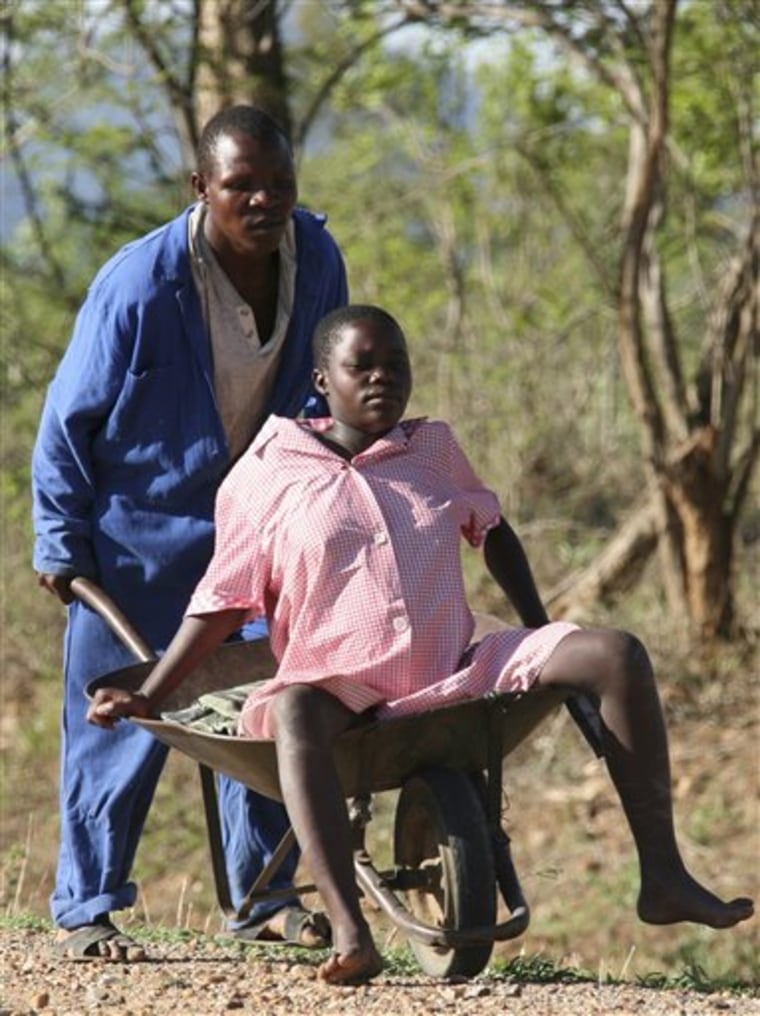Zimbabwe has collapsed, and the world must act now to keep it from deteriorating into Somalia-scale chaos, the top U.S. envoy for Africa said Thursday.
U.S. Assistant Secretary of State for African Affairs Jendayi Frazer said questions about how much longer Zimbabwe can withstand hunger, disease and political stalemate before disintegrating ignore that "there is a complete collapse right now."
If action is not taken soon, chaos could ensue and Zimbabwe's neighbors will be calling for peacekeepers, as some are now calling for in Somalia, Frazer said during an interview in South Africa.
Frazer was in southern Africa to consult with regional leaders about what can be done to help Zimbabwe. A day earlier, South African President Kgalema Motlanthe stressed that he believed a proposed unity government was the solution, and that it must be formed quickly.
U.S. among Mugabe's critics
Zimbabwean President Robert Mugabe, in power since independence from Britain in 1980 and seen as increasingly autocratic, and the opposition have been deadlocked over a power-sharing agreement since September.
Frazer said that while the U.S. was not saying the power-sharing agreement has no chance, its proposal is that Mugabe yield to a caretaker government to organize new elections. The U.S. is among Mugabe's sharpest critics, accusing him of trampling on democracy and destroying a once prosperous and stable nation.
"We think that the person who has ruined the country ... that he needs to step down," Frazer said. "We're watching Zimbabwe become a failed state. We need to act now, proactively, in Zimbabwe."
The political impasse comes amid a mounting economic and humanitarian crisis that has pushed thousands of Zimbabweans to the point of starvation and left 1,111 dead of cholera since August.
The latest figures, compiled by the World Health Organization and released Thursday, show that the number of cases has risen to 20,581 since the start of the outbreak.
Also Thursday, Frazer said the United States was pressing for a U.N.-sanctioned peacekeeping force for Somalia that would be staffed by Africans.
No apparent support for U.N. force
A day earlier at the United Nations, Secretary-General Ban Ki-moon said that during the past four months he has asked at least 50 nations and three international organizations to support the council's request for a multinational force to stabilize Somalia.
He said the "lukewarm or negative" replies he had received led him to believe there is almost no international support for a U.N. force.
A U.N. peacekeeping force met disaster in 1993, when militiamen shot down two U.S. Army Black Hawk helicopters and battled U.S. troops, killing 18 American servicemen whose bodies were dragged through the streets. That experience precipitating the U.S. withdrawal was portrayed in the 2001 movie "Black Hawk Down."
Ban said the first priority should be to strengthen an AU mission first deployed to Somalia in March 2007. It is authorized to have 8,000 troops, but now includes only 2,600, mostly Ugandans and Burundians.
But Frazer said what the United States was backing, and what Africans have called for in Somalia, does have support.
She said with the funding and logistical support a U.N. force would receive, Ugandans, Burundians, Nigerians and others would step up with the troops to ensure aid shipments and government institutions were protected. She said the U.S. would provide funds and training, but no troops.
